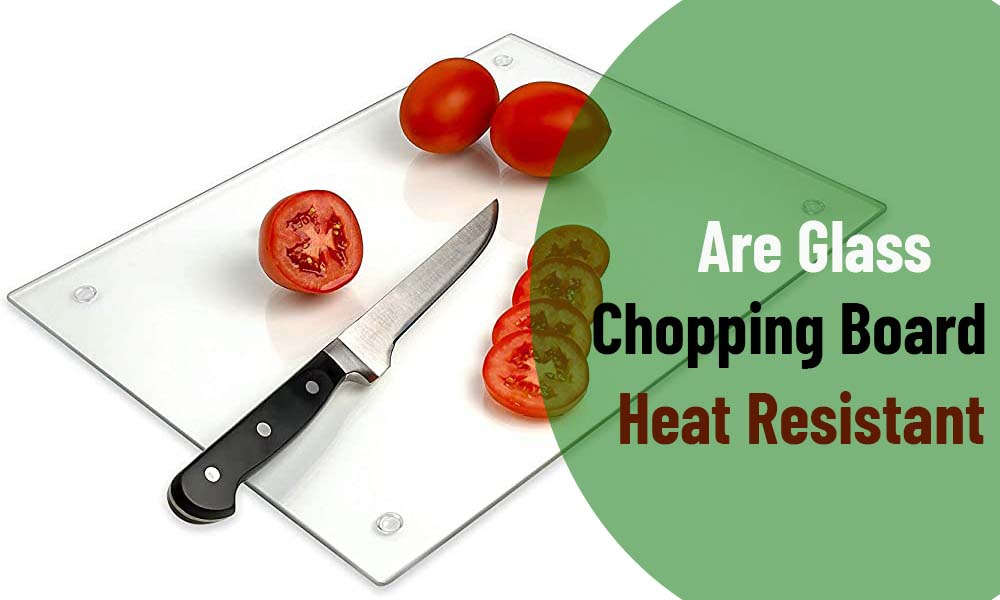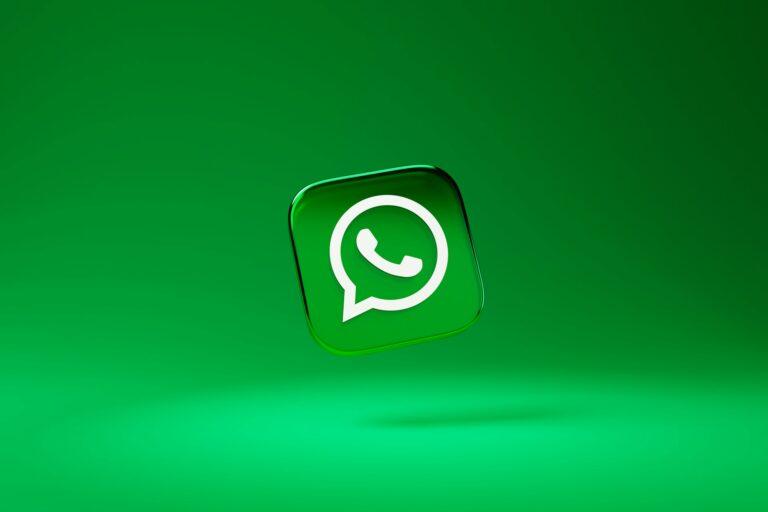Are Glass Chopping Boards Heat Resistant? (True Is Revealed)

When it comes to food preparation, having a reliable chopping board is crucial. Glass chopping boards have become increasingly popular. Still, somebody wonders, are glass chopping boards heat-resistant enough to be used in the kitchen?
The answer is yes, in most cases. Most glass chopping boards can withstand temperatures of up to 200°C, making them suitable for use with hot pans and dishes. Glass chopping boards can be a great addition to any cooking space. Still, it is crucial to understand how they work and compare them to other materials.
This blog will answer that question and review the benefits and drawbacks of glass chopping boards. I’ll also discuss how to utilize glass chopping boards securely and compare them to other popular materials like wood and plastic.
Are Glass Chopping Boards Heat Resistant?
Glass chopping boards are typically heat resistant to some extent, but they are not entirely heatproof. How well a glass chopping board can handle heat will depend on the type and quality of glass used to make it.
Most of the time, tempered glass cutting boards can handle heat better than other glass cutting boards. Tempered glass goes through a unique process of being heated and cooled, which makes it more robust and able to handle higher temperatures.
But when it comes to heat resistance, even tempered glass cutting boards are limited. They may be able to handle temperatures up to 300-400 degrees Fahrenheit (150-200 degrees Celsius), but they can still crack or break if the temperature changes quickly or if the heat is too high.
Always be careful when using a cutting board near a heat source, and never put a hot pot or pan straight on a glass cutting board. However, you should always check the manufacturer’s instructions before using the board at high temperatures, as some types of glass may be more heat-sensitive than others.
Factors Affecting Heat Resistance Of Glass Chopping Boards
Glass chopping boards are heat resistant, but the extent of resistance can vary. The resistance factor depends on the board’s thickness and the type of glass used. The thicker the board, the better the heat resistance. Similarly, borosilicate glass is the best material for glass chopping boards as it is the most heat resistant.
The other factors determining the glass chopping boards’ heat resistance are the glass’s quality and the temperature range at which it can withstand heat. Generally, thicker boards made of borosilicate glass can withstand higher temperatures.
As long as we know, “are glass chopping boards heat resistant.” But do you know what glass chopping boards are? Let’s get to know details about glass chopping boards.
Introduction To Glass Chopping Boards
Glass chopping boards are an increasingly popular kitchen tool, providing an elegant and hygienic alternative to traditional wooden boards. They are lightweight and dishwasher-safe, making them easy to clean and store.
Types Of Glass Chopping Boards
Glass chopping boards come in a variety of styles and types. Tempered glass boards are the most common, as they are heat resistant to temperatures of 248°F. They are also scratch-resistant and non-porous, making them easy to clean and maintain.
Laminated glass boards are also available and are slightly more heat-resistant than tempered glass, though they are more prone to scratches. Lastly, some recycled glass boards are made from recycled glass materials and offer a unique look, though they are not as heat resistant as the other two types.
How To Use Glass Chopping Boards Safely
If you follow these rules, you can use glass cutting boards safely:
- Use a sturdy and stable surface. Put the glass chopping board on a sturdy and durable surface, like a countertop or a cutting board.
- Do not chop with too much force. The glass board could crack or break if you chop with too much force. Use a sharp knife instead, and let the knife’s weight do the work.
- Avoid sudden temperature changes. You can’t use a glass cutting board in the microwave or oven. Also, don’t expose them to sudden changes in temperature, like putting them in the fridge or freezer right after use.
- Clean and dry it right. After each use, wash the glass cutting board with soap and warm water. A soft cloth or paper towel is used to dry it completely so water spots or moisture don’t build up.
- Keep the glass cutting board in a cool, dry place without direct sunlight or near other heat sources. Don’t put other things on top of it because that could cause it to break or crack.
- If the glass chopping board is broken, don’t use it. If it has cracks or chips, don’t use it. Replace it right away to avoid getting hurt.
Following these rules, you can use glass cutting boards safely when cooking and preparing food.
Advantages Of Glass Chopping Boards
Glass cutting boards are better than other types of cutting surfaces, like wood or plastic, in several ways:
- Durability: Glass chopping boards are solid and can take a lot of use without getting deep grooves or scratches that can harbor bacteria.
- Easy to clean: Glass is non-porous and does not absorb moisture, making it easy to clean and sanitize. Unlike wood, glass does not retain food odors or stains.
- Hygienic: Glass is a non-reactive material with no chemicals that could get into food. It can also fight off bacteria and other tiny organisms that make you sick.
- Heat-resistant: Glass is a great place to put hot pots and pans because it doesn’t warp or break when it gets hot.
- Aesthetics: glass chopping boards can be made in many different colors and patterns, making them a stylish addition to any kitchen.
- Multipurpose: Glass chooping boards can be used to cut and prepare different kinds of food, like meat, fish, vegetables, and fruit. You can also put cheese and other appetizers on them to serve.
Overall, glass chopping boards are an excellent choice for any home cook or professional chef because they are durable, easy to clean, and can be used for many things.
Why Should You Not Use A Glass Cutting Board?
There are several reasons why you shouldn’t use a glass cutting board:
Glass is too hard:
Glass is a very hard material that can damage your knives. Cutting on a hard surface like glass can dull your blades quickly, making them less useful and needing to be sharpened more often.
Glass is not forgiving:
Unlike wood, bamboo, or plastic chopping boards, glass doesn’t give or have a cushioning effect. When cutting hard vegetables like carrots or beets can be hard. You could get hurt if your knife slips on a hard surface like glass.
Glass can break:
Glass chopping boards often crack and break, particularly if you accidentally drop them or put something heavy on them. If the glass breaks, it can hurt you or make your food dangerous.
Glass can damage your countertops:
Glass chopping boards are hard and not flexible, so they can scratch or chip your countertops. Over time, these scratches can give bacteria and other harmful microorganisms a place to grow.
Ultimately, glass chopping boards are not the best choice for your kitchen. Instead, choose a wooden, bamboo, or plastic cutting board. These materials are more forgiving and less likely to hurt you or your knives or countertops.
Are Glass Cutting Boards Ok For Knives?
Glass cutting boards can harm knives, especially over time. Glass cutting boards can harm knives, especially over time. Even though glass cutting boards can last a long time and are easy to clean, they are more challenging than common cutting board materials like wood, plastic, or bamboo. This hardness can make knife edges dull, meaning they need to be sharpened more often or even cause damage to the blade.
Also, glass cutting boards can be very slippery, making cutting more dangerous and even breaking when a sharp knife presses down on them. Because of these things, it is usually best to use a cutting board made of a soft material, like wood or plastic, which is safer and easier to cut on.
If you use a glass cutting board, you must be extra careful with your knives and sharpen them often to keep them in good shape.
People Also Ask
- Are glass chopping boards oven safe?
No, glass chopping boards are not oven safe.
2. Can glass chopping boards be used on a hot surface?
No, glass chopping boards cannot be used on a hot surface as they are not heat resistant and can easily crack or shatter.
3. Can glass chopping boards be put in a dishwasher?
Yes, glass chopping boards can be put in a dishwasher.
3. Can glass chopping boards be used as a trivet?
Yes, glass chopping boards can be used as a trivet. They are heat resistant up to 350°F.
4. How durable are glass chopping boards?
Glass chopping boards are quite durable as they are made of tempered glass, which is resistant to cracking and breaking. They are also scratch and heat-resistant, making them a great choice for chopping and preparing food.
Final Thought
Glass chopping boards can look good and be useful in any kitchen. Not only are they easy to clean and keep up, but they also provide a sturdy surface for preparing food. Some people may worry, “are glass chopping boards heat resistant,” but it’s important to remember that many glass cutting boards are made to handle high temperatures. Before putting your board in a very hot place, always check the manufacturer’s instructions first.
Whether you’re a professional chef or just like to cook at home, a glass chopping board can give your kitchen a sleek and modern look while helping you make your favorite meals. So, don’t be afraid to try and see how it can improve your food.

